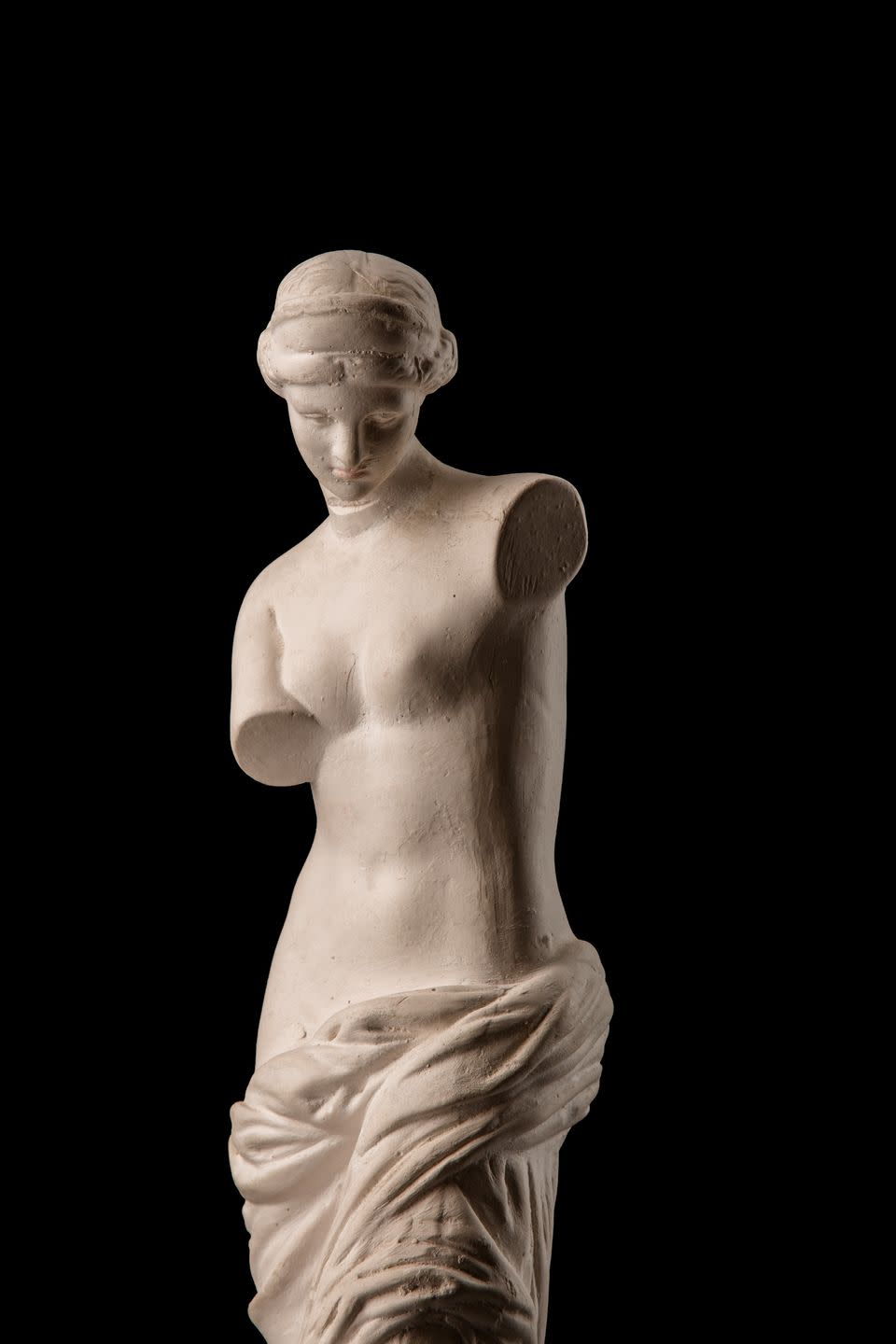Why Does Everyone We Know Have Frozen Shoulder?

"Hearst Magazines and Yahoo may earn commission or revenue on some items through these links."

“I’m just getting over this thing…it’s so embarrassing,” said Amy Poehler on an October episode of Fly on the Wall, the popular SNL-centric podcast cohosted by Dana Carvey and David Spade. “It sounds like a cocktail.… It comes out of nowhere.” What Poehler was referring to was a debilitating case of frozen shoulder: an inflammation that came on abruptly and rendered her unable to fully lift up her arm. It lasted for a full year. “Is it a real thing, or are you just falling apart?” Spade asked her jokingly. But despite its seemingly made-up name, frozen shoulder is a very real problem. And one that disproportionately affects women during the menopause transition, says Vonda Wright, MD, an orthopedic surgeon who speaks often to her 350,000-plus Instagram followers about the intersection of menopause, mobility, and musculoskeletal health. For those who are, at this point, asking, “What in the fresh hell is frozen shoulder?” here’s your primer.
What, technically, is frozen shoulder?
The proper medical moniker for this condition is adhesive capsulitis. The capsule in question, explains Wright, is the skin inside the joint that surrounds the bones and contains the joint’s fluid. “It’s a critical tissue for the health of the joints,” she says. It’s also incredibly sensitive to inflammation: “What happens, sometimes without warning and very rapidly, is that inflammation, even a minor amount, causes a tightening of the capsule.” That tightening impacts the entire shoulder compartment, dramatically reducing mobility (many sufferers can’t zip up clothing or hook their bra) and causing significant pain.
What kind of pain are we talking about?
It varies from individual to individual, but for many, it is debilitating and extremely disruptive. “Not being able to move your shoulder has a profound effect on daily activities,” says Wright. “Imagine not being able to get your hand over your head to brush your hair!” Worse yet, the pain can persist. Sandra Lanshin Chiu, founder of Lanshin, a traditional Chinese medicine (TCM) practice in Brooklyn, says that frozen shoulder typically has three stages: an initial stage or sharp, yelp-inducing pain; the frozen stage, characterized by extreme stiffness and immobility; and, finally, the thaw. “Generally speaking, it can last one to three years, with some episodes of flaring that feel more acute,” says Chiu.
Why does this happen in middle age?
While both men and women in midlife can fall prey (in TCM, its nickname is actually “50-year-old shoulder,” says Chiu), it tends to impact women during perimenopause and menopause in far greater numbers. According to Wright, 80 percent of all women in midlife will experience the musculoskeletal symptoms of menopause.
In fact, “many women experience joint pain as their most significant symptom of menopause, yet this is poorly recognized or appreciated,” says Robin Noble, MD, a gynecologist in Portland, Maine, and one of a network of experts who works with Perry, a powerhouse perimenopause platform. While there may not always be a hormonal link, in many cases, estrogen (or the lack thereof) plays a key part. “Estrogen has receptors in so many different areas of the body: our ears, eyes, skin, hair, vasculature, bones, and almost all the cells in the joints,” says Noble. There is also well-documented evidence on ligament laxity related to estrogen, including studies that have examined how professional female athletes are at a higher risk of ligament injury when they’re ovulating and the hormone dips. “When estrogen precipitously drops, the whole body becomes rapidly inflamed,” says Wright. “Tendon and ligament problems are all due to the effects of estrogen walking out the door.”
How do you treat it?
When Noble’s patients present with frozen shoulder symptoms, she typically sends them to their primary care physician for an evaluation, and if that doesn’t make a difference, to an orthopedic doctor and a physical therapist. She also considers hormone therapy treatment to be helpful for the right candidates. Wright agrees: “Women tell me that when they start HRT, the musculoskeletal symptoms of menopause sometimes decrease within a week, often within a month,” she says, adding that the decision is, of course, a very personal one. A study published last year by Jocelyn Ross Wittstein, MD, an associate professor of orthopaedic surgery at Duke University, backs up the benefits of HRT in treating frozen shoulder.
Wright also enlists anti-inflammatory steroid injections for shoulders that are completely frozen to help increase the rate of recovery, and injections of platelet-enriched plasma (wherein whole blood is drawn out of the arm, then billions of platelets are spun off and shot into the shoulder capsule) to decrease inflammation. As for Chiu, “I treat frozen shoulder using acupuncture, electroacupuncture (with electric stimulation of needles) if necessary, cupping, gua sha, and/or moxabustion (heat therapy),” she says, adding that in initial studies, acupuncture has shown particular promise. Though every case is unique, she says that two to four weekly sessions are a good starting point.
How can I manage the pain?
Keeping up with physical therapy stretches and exercises is crucial. Chiu also has her patients use targeted heat (whether it’s a pad, a hot water bottle, or the Lanshin hot massager she designed) on the back of the shoulder, arm, and neck. “Heat helps amplify the blood circulation and gets blood and qi (energy) moving, which will help ease the pain,” she explains, adding that you should “never, ever ice a frozen shoulder.”
Wright recommends eating an anti-inflammatory diet (one that’s low in simple sugar and processed carbs and high in fiber and complex carbs), which can relieve all your joints. But at the top of her treatment algorithm? Keep it moving, which can take some convincing because, well, it freaking hurts. Wright suggests slowly walking your arm up a wall or a variety of shoulder exercises using a resistance band. And don’t stop as soon as you feel better. The most frustrating thing about frozen shoulder may be that when it’s over, it’s not necessarily over. “It doesn’t mean you can’t get it again,” she says. “Your shoulder is always fair game.”
You Might Also Like
